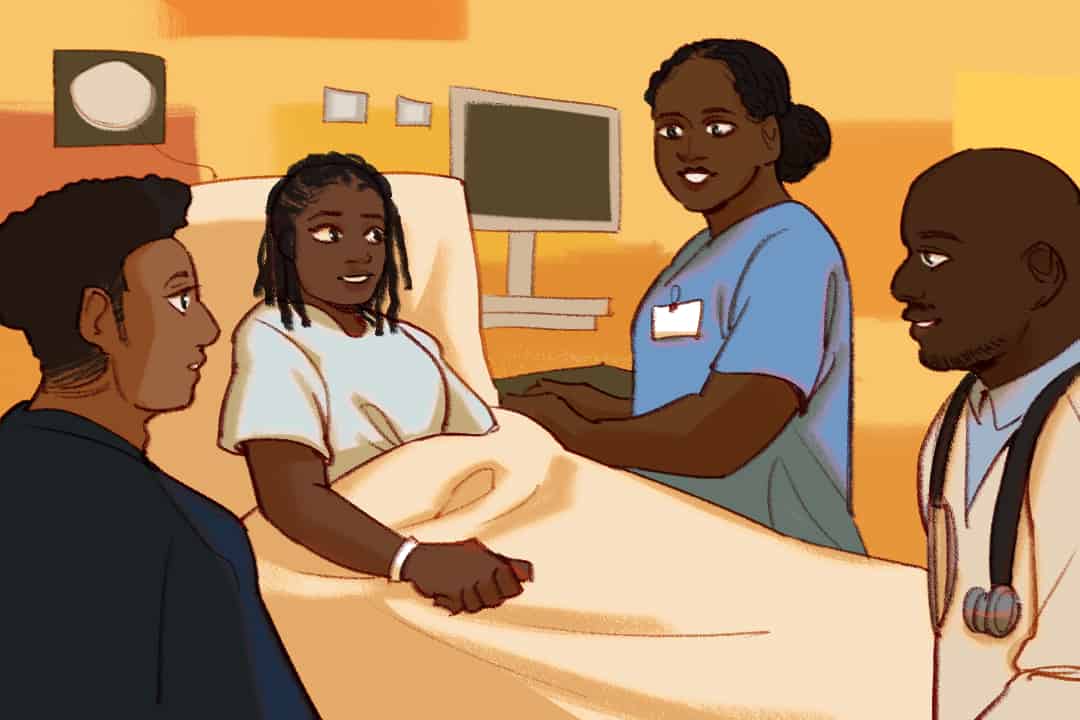“It’s so good to see you!”
As a Black medical student, this is a phrase I have become used to hearing from Black patients.
I knew I wanted to be a physician from a young age. I would play doctor with my little sister, sticking BAND-AIDs on her fake gashes and writing fake prescriptions for fake medicine. The thought of being able to take away someone’s pain and cure their illness seemed like the most fulfilling job in the world to me.
However, at times, this dream felt like an impossible feat. Growing up, I didn’t have Black role models in medicine. In fact, it was not until I was in university that I was treated by a Black physician for the very first time. Having lived this experience myself, I can understand the relief and the comfort that comes with having someone who looks like you providing you with medical care.
The very first patient I got to interview on my own as a medical student was an older Black woman. I remember the look she gave me as my supervisor introduced me to her as a “medical student who was here to take her history.” She had a subtle smile, the corners of her mouth upturned, and a twinkle in her eye — a look of pleasant surprise.
I sat down near her hospital bed with my neatly written template in hand, ready to ask about her course in the hospital, the medications she was taking, her past medical history, and more. As I gathered this information and wrote it swiftly in my notebook, I couldn’t help but feel a sense of ease and understanding between us. When I asked about her diet, she shared without hesitation the cultural foods she ate at home, knowing that our similar backgrounds lent us similar experiences. I couldn’t help but wonder how her response may have been different if she talked with someone else.
At the end of our conversation, she said, “It’s so good to see you!” and I immediately knew what she meant by that statement. She told me to persevere, that we needed more Black women in medicine, and that she was proud of me. These words have stayed with me since that day.
Over a year after that interaction, I was asked to take the history of a new mother. I walked into the hospital room to see a postpartum mother, looking tired, but happy nonetheless, gazing adoringly at her new baby sleeping peacefully. She was also Black. I spent time documenting her pregnancy and birth history in detail. She was incredibly open with me, sharing the ups and downs of her experience, her fears, and her excitement.
At the end of the interaction, she too said “It’s so good to see you!” She said we needed more Black representation in health care and that she was grateful she got to meet me before heading home with her baby.
In both instances, seeing a Black medical student was such a notable surprise that the patients made sure to mention it to me. Both patients felt inclined to offer me words of encouragement and guidance, knowing the challenges I would likely face as a Black woman in medicine.
These words have pushed me forward on my darkest days, when I have doubted my capabilities or worthiness to exist in these spaces, or when I have faced microaggressions that others don’t notice. Knowing that my presence means so much to the patients I interact with motivates me day after day.
After all, Black patients are more likely to feel comfortable with Black physicians and comply with preventative measures administered by Black physicians. Having now experienced this deep understanding and trust with Black patients as a medical student, I can only imagine the more profound impact I can have as a future physician.
A 2020 study conducted in the US revealed that Black patients have better health outcomes when a Black physician treats them. Increased representation in health care helps to reduce the health disparities Black patients face because of systemic racism.
My presence, and that of my Black colleagues, can help minimize the barriers that Black patients face, and can ease the clinical experience of patients like those I have had the pleasure of interacting with thus far. While tremendous progress has been made, there is still more work to be done to increase Black representation in medicine. We must continue to advocate for and support Black leaders.
As I continue in my medical training, I plan to keep these encounters close to my heart. I look forward to the day that I can say to my own patients, “It’s good to see you again.”
Morgan Martin is a second-year medical student in the Temerty Faculty of Medicine.


